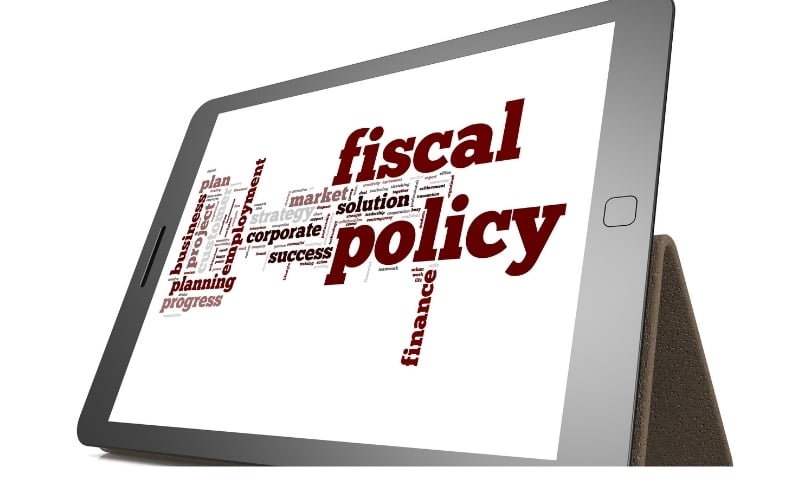Two of the major macroeconomic goals are sustained economic growth and limiting inflation. Sometimes, the forces of the free market cause the economy to overheat or be in a recession. This will lead to government interventions. One of the options available to them will be fiscal policy.
Definition
Fiscal policy is a macroeconomic policy employed by a country’s government to regulate its economy. Government has the ability to interfere with the economy’s output through adjustments in their spending. To have the desired effect, governments need to decide how much and when it wants to get involved. The two main tools of fiscal policy are: changing tax laws and government spending. Both affect the government’s budget hence the name ‘fiscal,’ which refers to ‘budget.’
Tools of fiscal policy
Government spending
Governments have reserves in their budgets that allow for spending in periods of recession or high unemployment. Generally, there is a high level of uncertainty during recessions which makes consumers more cautious with their spending. Low consumer confidence and spending can perpetuate a recession to spiral into an economic depression, as seen in the Great Depression of 1930. Governments can counteract this by pumping more money into the circular flow to reduce the imminent uncertainty.
Governments have different strategies to approach spending, depending on their objectives. Spending similar to a stimulus check will have a greater short-term economic effect as people tend to spend these in full. On the other hand, infrastructure or capital investments focus on a long-term plan of achieving full employment.
Here is an example of the latter method. In a recession, the government may decide to build a new recreational park near the city centre. This is beneficial in two ways. Firstly, it will support businesses that provide designs and materials for the construction process. These businesses will have more capital to reinvest in other projects.
Secondly, workers will have jobs. Subsequently, they will have more confidence to spend which will stimulate the economy and benefit from the multiplier effect.
One of the most well-known fiscal policies is the stimulus checks offered to American citizens after a recession, notably after the 9/11 tragedy and Covid-19.
Taxes
Taxes are a fiscal policy because they affect government income. Changes in tax are usually employed as part of a contractionary fiscal policy to avoid inflation. However, it is possible that it can accompany an expansionary policy.
There are many tax tools available to the government to change the policy. However, the most popular type is the income tax. Changes in income tax will have an inverse effect on disposable income. More income leads to more spending to increase aggregate demand and vice-versa.
Conclusion
Fiscal policy is a government’s budget-based policy that combines government spending and changes in taxation to regulate the economy. Having an understanding of this policy can help you predict its application and adjust your investment strategy accordingly.



